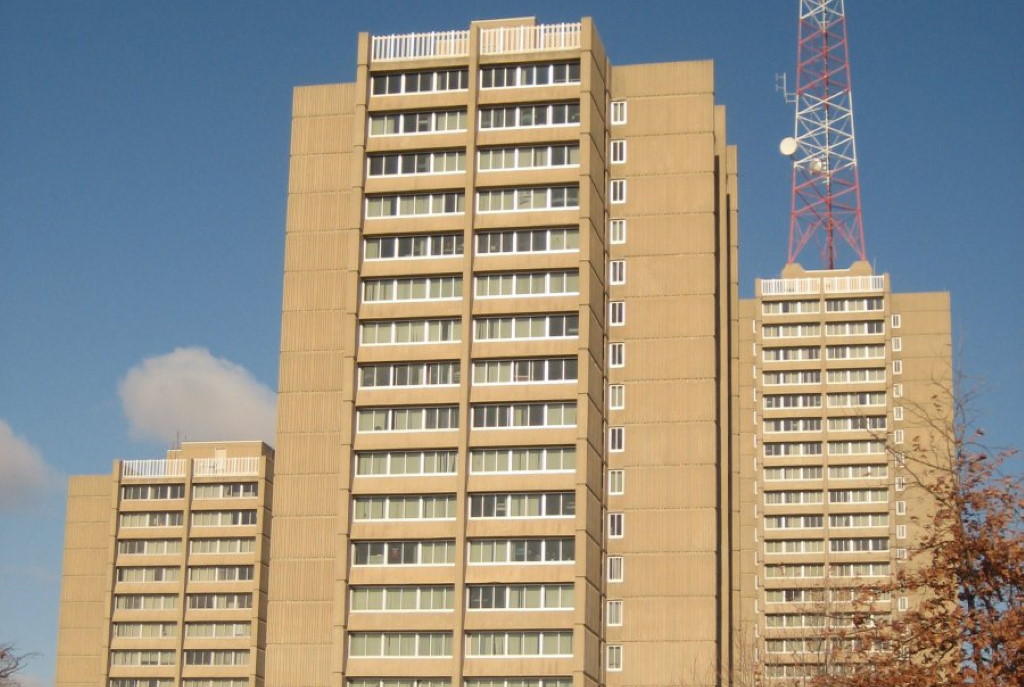UW Chancellors Push for More Funding
Blank and Mone contest legislators claim that UW system can rely on federal stimulus money.
Legislative leaders in Wisconsin have recoiled at a number of proposals in Gov. Tony Evers’ proposed budget on the grounds that more spending isn’t necessary in areas — ranging from expanding broadband access to higher education spending — that will be boosted by federal money coming from the American Rescue Plan Act (ARPA).
On Thursday, two UW System chancellors pushed back on that claim, saying the ARPA money isn’t even enough to fill the COVID-sized hole in their finances, much less provide the investment in the state’s public education system that they say is required.
“I think that’s just a complete misunderstanding of the federal dollars that are coming to higher education,” Blank said. “So we’re getting dollars that are very specifically constrained, they must be spent on costs that were related to COVID.”
Evers’ proposals include the statewide expansion of a program that provides grants to help low-income students pay for college. The governor’s capital budget proposal also includes needed infrastructure upgrades for campuses across the UW System.
“There has to be state investment in higher education, and that’s going to require dollars of the sort that Gov. Evers is asking for and we’re talking with the state Legislature about,” Blank said. “I think that there’s always an argument as to why you can’t fund universities, and if they won’t find one they’ll find another. I mean I think most of the people in the legislature understand the nature of these federal dollars.”
Mone said the federal money can help with the losses of the past year, but that he hopes the state budget can turn the tide on investment in higher education in the state.
“We have had continued disinvestment in the state of Wisconsin higher ed, for the last 11 years, relative to other regional public universities,” Mone said. “This puts us in a very difficult situation to keep the cost of education lower, to continue to provide the quality education that really is needed for us to maintain our quality of life, and the opportunities for individuals and families to have the great education system the University of Wisconsin System has been known for.”
Both administrators are looking toward a fall semester that more closely resembles regular operations. As of April 21, more than 27,000 UW-Madison students and staff had received at least one dose of a COVID-19 vaccine. Blank and Mone said there were valuable lessons learned from having to quickly shift to an online and hybrid model of education — while acknowledging the learning environment is better when students can be in the classroom.
“We are planning on a pretty normal fall semester,” Blank said. “We hope that most of our students and staff will choose to be vaccinated, we will have ongoing testing for those who choose not to, but we’re hoping that we can be back in person, have everybody back on campus and have normal activities going on. Virtual learning is not a substitute for residential education, and it’s not a substitute for the classroom. There’s a good amount of research that says the type of interactions and discussions that you had face-to-face are very different than those you have in these Zoom squares, and you know there’s an intimacy and a change in the nature of discussion.”
Mone added that even if students are still participating in classes and grades aren’t falling dramatically, college students across the country are reporting higher levels of anxiety and depression during the pandemic.
Both senators and a number of other members of Congress have pushed President Joe Biden to unilaterally forgive federal student loans through an executive order.
Mone seemed more open to the idea, saying he’d want to know how it would be funded. But Blank said that most UW-Madison students don’t leave school with crippling amounts of debt so she’d want any forgiveness to focus on specific careers such as teaching or social work that present graduates with challenges in paying off loans.
“The idea that no one should borrow for college I think is not the right idea,” Blank said. “And I do think that some form of debt forgiveness is useful. I think you want to link it to the jobs that people are in or to the careers that they’re in. I don’t think you want to do across the board debt forgiveness … We shouldn’t do it in that same blanket way for those leaving college.”
Reprinted with permission of Wisconsin Examiner.






















